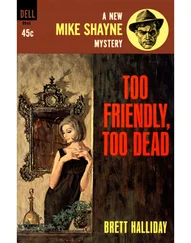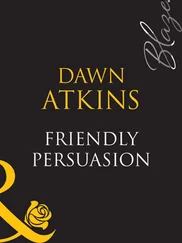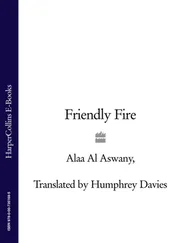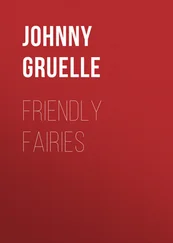She looks for the Book of Job. There, at least, she can find human suffering with a personal, not a national, dimension. She hopes, too, to find in it rare words to challenge her English.
In this version, for some reason the Book of Job is in a different place, hidden in a spot that considerably precedes Jeremiah. Once she locates it, though, she has no trouble at all collecting words indecipherable to her, such as:
froward
collops
assuaged
reins
gin
cockle
neesing
It is wondrous and pleasing to encounter in the Bible vocabulary she fails utterly to understand in a language that she loves and teaches, and she writes the words down on the last page of the novel. Perhaps she can use them to test the regional supervisor of English studies back home, an ironic bachelor from South Africa who likes her and cultivates her company. But would it be nice to embarrass a friend with a test he might well not pass?
Then she lets go of Job, which does seem to her a more estimable text, but stuffed with tedious repetitions. And in general — a lazy drowsiness flutters her eyes — one could compress the Bible a bit without losing anything significant. With the book in her hand she gets up to close the blinds against the imminent sunrise, but before laying it down and turning off the light, she decides to have a look at the Song of Songs.
Right from the sensual start— Let him kiss me with the kisses of his mouth —the English flows melodically. Here there's not one cryptic word; each one seems right and trustworthy, with the spirit of the original Hebrew hovering over the lines. The old-fashioned English resonates with grace and grandeur, even a hint of humor. Here is love, open and generous, sometimes pleading for its life, sometimes daring and expansive, bronzed by the noon sun, or burning at night. Yes, now she understands why it was here that the bereaved father began to sob.
I am black, but comely,
O ye daughters of Jerusalem,
As the tents of Kedar,
As the curtains of Solomon.
Look not upon me because I am black—
Because the sun hath looked upon me.
In the imagination of the white woman, on her bed at night in the Dark Continent, the Sudanese Sijjin Kuang arises now from the desert, black and comely, her stature like a palm tree, and goes about the city at night sick with love, wandering through streets and markets, searching for the one that her soul has loved, and she cannot find him, and the watchmen on the walls find her and beat and wound her, and tear away her scarf, and she is as a rose among the thorns…
And the Israeli visitor is drawn to her and runs after her, skimming through the eight chapters not in tears, but with a pounding heart.
0 that thou wert as my brother,
That sucked the breasts of my mother,
When I should find thee without,
1 would kiss thee;
Yes, I should not be despised.
She closes the book and sets it aside. Turns off the light, curls up, and plummets into merciful sleep. And not one hour passes but three, as the violent morning light tries in vain to peek between the slats. At last a knock at the door wakes her; surely it is her brother-in-law calling her to breakfast, or else Sijjin Kuang who has returned, and without a second's thought she invites whoever is at the unlocked door to enter, but the door does not open, because out by the stairway stands the Ugandan archaeologist Dr. Robert Kukiriza, who very politely asks permission to enter for a private conversation.
And because she is flattered that the star intellectual of the team has seen fit to come alone to her room, she asks him to wait a moment, and she takes off her nightgown and runs barefoot to wash her face, puts on the African dress, quickly makes the bed, after closing the Israeli novel lying there face down and standing it on the shelf beside the Bible. Just before going to the door, she opens the shutters wide to let in some fresh air, and then, still barefoot, she turns the handle.
3.
NOW FRANCISCO ENTERS with Maurice, the owner of today's private ambulance, who years ago used to transport the lady of the house to clinics and hospitals for her tests and treatments. He is an Egyptian Jew, and he was brought with him to Israel the easygoing, patient temperament of the denizens of the land of the Nile. Sometimes, with just a few words, he instills hope in his round-trip clients. In her final years, Ya'ari's mother became quite attached to him, and preferred his ambulance to a taxi even for shopping or visits to friends.
"And here's our Maurice," says Ya'ari's father, spreading his arms with affection to greet the short, solidly built man. "When we see you, we remember the one who loved you so."
Maurice leans over the wheelchair and clasps the old man to his breast carefully, as if he were made of glass, then warmly shakes young Ya'ari's hand. How happy he is to be summoned again into service by the Ya'ari family, especially for a trip not to a hospital but to visit an old love.
The old man turns crimson and wags his finger back and forth at Francisco, who talked too much. But Amotz Ya'ari laughs and says, Here's proof for you that the heart just gets younger every day.
It's raw and drizzly in Tel Aviv, and Jerusalem will presumably be worse. Ya'ari insists that Francisco wrap his father in a big coat and, over that, the black plastic poncho, with its hood like the ones on his grandchildren's jackets. And after Marco and Pedro load a toolbox, prepared ahead of time, into the ambulance, and the cooler with the plastic containers of food, they take the suitor down in the elevator and wheel him, too, into the familiar blue vehicle that has grown a bit old, like its owner. For a moment Ya'ari deliberates whether to join his father in the ambulance or preserve his freedom and drive his own car. In the end he decides to supervise his father from close by, although he will need to crouch and squeeze in among the silent Filipinos.
"And what about the surprise?"
"The surprise is waiting at 9 Rabin Square, next to the Book Worm."
And the driver is advised accordingly.
Beside the bookstore, still closed at this hour, cloaked by a veil of fine rain, waits a figure of indeterminate age and gender. Even as it nimbly hops into the ambulance and removes its hat to shake the rain from it, uncovering cropped hair and a slightly wrinkled face, it is still hard to tell whether this person is male or female, young or old.
But the old man solves the riddle. Say hello to Gottlieb's expert, who today will help us interpret the shakes and howls in Jerusalem. Rochele? Roleleh? Is that the name? May I introduce my son and heir, Amotz.
"I already met the heir of the heir," the small woman says, smiling as she removes her wet jacket to reveal a blue jumpsuit, "and I hoped he'd be here, too."
"He is confined by the army for shirking his reserve duty."
"That doesn't seem to fit him."
"There are facts that don't fit reality," Ya'ari says, sighing.
Marco and Pedro gaze appreciatively at the tiny expert. With her subtle mix of boyish body and mature face, despite her blond hair and blue eyes she could be taken for Filipino.
"Moran told me that you listened together to the winds in Pinsker, and that you think the problem is not with our elevators, but entirely with flaws in the shaft."
"I don't think," the expert explains patiently, "I'm certain. You have to put the building contractor on the roof of an elevator, give him a powerful searchlight, and take him straight up to his blunder so he can see it and take responsibility."
"That's exactly what I suggested to Gottlieb," Ya'ari agrees, impressed by the woman's professional confidence. "I said we should light up the shaft. But our firm has no authority to touch the elevators, which are guaranteed by your company, and unfortunately your Gottlieb is stubbornly refusing to take any action, even to prove the responsibility lies elsewhere."
Читать дальше












